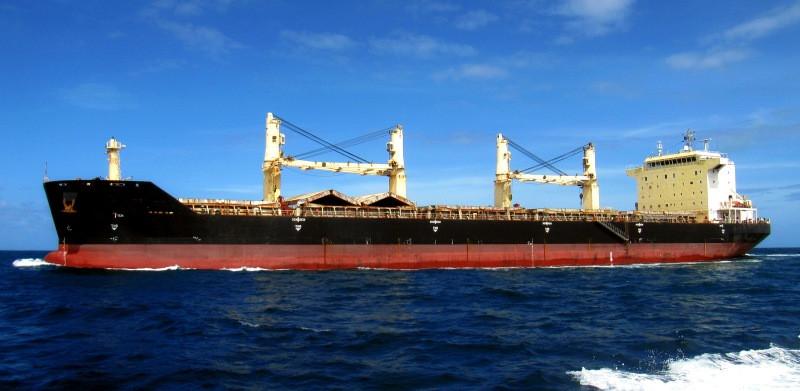Breakbulk|Air Freight|RO-RO
Iran ,Africa,South America ,Import Line
Ship charter features
Advantages and characteristics of charter project transportation
Yifan International has accumulated rich experience in chartering project transportation, and can provide customized services for customers’ chartering projects. Over the past 20 years, we have been consistent, insisting on walking in the forefront of Shenzhen chartering project transportation, and have a professional operation team to serve the majority of chartering project cargo owners. The advantageous routes of the charter project are imported from Iran, Africa and South America.

When should I use this service?
1 . What is a Chartering Project – Ship Chartering?
An important mode of ship operation in international trade transportation is chartering, in which the shipowner (or the second shipowner) does not provide transportation services to the charterers, but the right to use the ship. Chartered shipping, also known as non-tramp shipping, is another way of operating ocean-going vessels compared to liner transportation, that is, scheduled shipping. Unlike liner shipping, it does not have a pre-set schedule, no fixed route, no fixed port of call, and no fixed rate book. The operation of the vessel is arranged according to the prior charterparty signed between the owner of the ship and the charterer who needs to transport the vessel. The chartering business between the shipowner and the charterer is a commercial activity of foreign trade, also known as intangible trade.
Boat charters are usually done on the charter market. THERE, SHIP OWNERS, CHARTERERS, AND SHIP BROKERS GATHER TO EXCHANGE INFORMATION, PROVIDE SHIPS AND CARGO SOURCES, AND CONDUCT CHARTERING ACTIVITIES. In the charter market, large transactions are often made through charter brokers. They have a wide range of business contacts and are able to provide advice to the shipowner and the charterer to provide the ship source information, so as to facilitate the selection of the right person to negotiate with both parties. In addition to facilitating the ship leasing business, the ship broker also handles the sale and purchase of ships, ship agency and other businesses. Their main role is to provide the most suitable and profitable business for the client, provide market information, credit of the parties and reply to the client’s consultation, mediate and solve difficulties for both parties.
2 . Advantages and features of our charter projects
We have a large number of gold medal bulk shipowner resource contact channels, can provide consultation information to the ship owner and provide the charterer with real-time ship source information, is an experienced OPERATOR and ship broker, is the best partner to promote the success of the negotiation between the ship owner and the charterer.
The company mainly provides professional (bulk cargo) ship chartering services, and the chartering methods are mainly “voyage charter and time charter”. At the same time, it provides high-quality and professional ship operation services for shipowners and charterers.
Main ship type: 15000-60000/DWT deadweight tonnage bulk carrier;
Transportation goods: mainly coal, iron ore, nickel ore, manganese ore, bauxite, rare earth, clay, lead and gold ore, chrome ore, titanium ore, cassava chips, wood chips, grain, cement, fertilizer, etc.
Main routes: The advantageous routes are the Middle East, India and Pakistan, the Persian Gulf, South America and Africa.
Service content: “charter transportation service” for bulk cargo at sea.
3 . Voyage charter and time charter charters
(1)Voyage charter: It is a charter business in which the owner of the ship provides all or part of the ship’s position to the charterer according to the tariffs and conditions agreed upon by both parties in advance, and transports the specified goods on one or more voyages between the designated ports.
Voyage charter can be divided into:
1)SINGLE VOYAGE CHARTER, WHICH CHARTERS ONLY ONE VOYAGE. The shipowner is responsible for transporting the designated cargo from one port to another, and the contract is terminated when the cargo is unloaded at the port of destination.
2)ROUND VOYAGE CHARTER, A ROUND VOYAGE CHARTER, A SHIP AFTER COMPLETING A SINGLE VOYAGE, IMMEDIATELY AFTER LOADING AT THE PORT OF DISCHARGE (OR ITS NEARBY PORT) OF THE PREVIOUS VOYAGE, SAILING BACK TO THE ORIGINAL PORT OF LOADING (OR ITS NEARBY PORT) TO UNLOAD, THE CONTRACT WILL BE TERMINATED AFTER THE CARGO IS UNLOADED.
3)CONTINUOUS VOYAGE CHARTER, I.E., A CHARTER THAT NEGOTIATES THE COMPLETION OF SEVERAL SINGLE VOYAGES OR SEVERAL ROUND-TRIP VOYAGES. In this way, the contract is concluded when the same vessel, in the same direction and on the same route, completes two or more specified single voyages in succession.
4)CONTRACT OF AFFREIGHTMENT (COA) IS ALSO KNOWN AS A LARGE CONTRACT. That is, it is a chartering method that only determines the quantity of goods to be carried and the completion period, and does not specify the number of voyages and the number of ships.
(2) Time charter: It is a charter method in which the owner of the ship leases the ship to the charterer for a certain period of time, during which the carrier can use the carrying capacity of the ship to arrange freight. Operating expenses such as bunker charges, port charges and tugboat charges are borne by the charterer, and the owner is only responsible for the maintenance, insurance, crewing and maintenance of the crew and other fixed expenses. The charter party shall remain unchanged during the charter period, and the payment method shall generally be calculated according to a number of monetary units per tonne per month at the ship’s summer load line, and shall be prepaid every 30 days (or daily per month) or semi-monthly.

